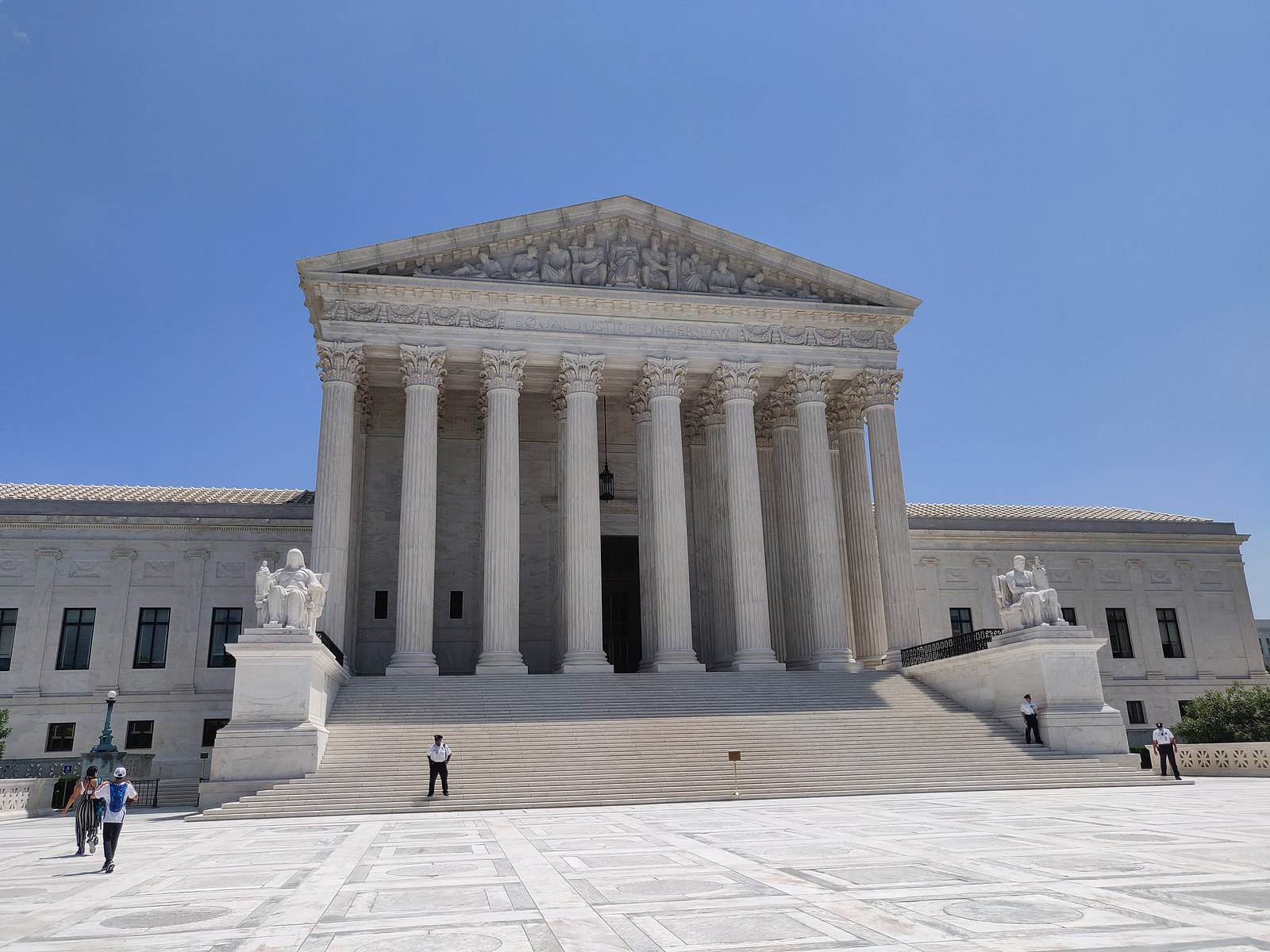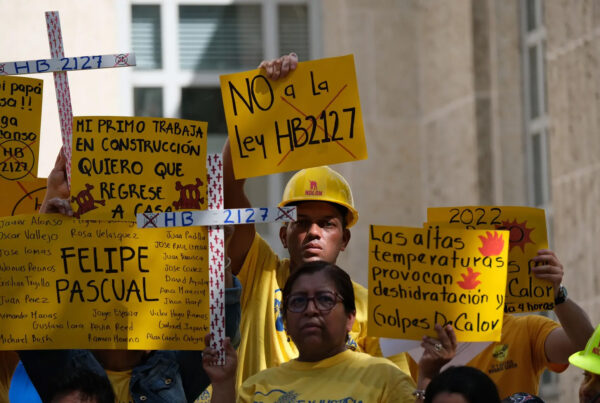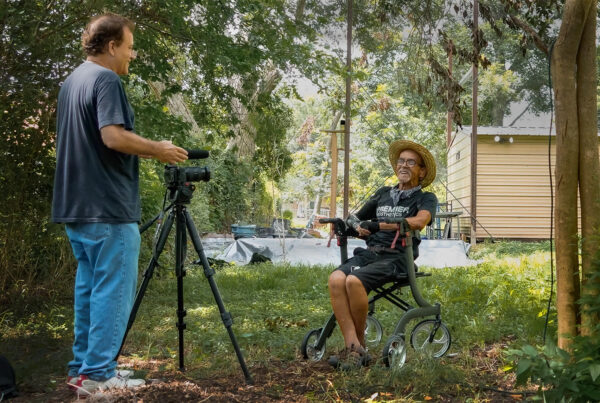What’s the difference between a technicality and an important point of law? Well, according to the old joke, the main difference is whether you won or lost.
But there’s an important point buried in there. Sometimes major cases and outcomes are decided not on the merits or the big issues at play, but on whether the case was properly brought to the court in the first place.
For instance, those who say they have a case typically first have to show how they’ve been harmed or are in imminent danger of being harmed. It’s a threshold for making a complaint called standing: Does the plaintiff have enough of a special interest in a particular matter to stand before the court to request legal intervention?
Now, this would be an academic question – and often is in law school – except that the outcome can have dramatic real-world implications, as it did in the recent Supreme Court case involving student loan forgiveness. And as UT constitutional law professor Stephen Vladeck writes for his One First blog on Substack, the way the high court handled the issue of standing in the student loan forgiveness case raises profound questions for the court going forward.
Vladeck joined the Texas Standard for a conversation about the importance of these recent decisions, and their implications on future standing.
The following transcript has been lightly edited for clarity:
Texas Standard: Remind us first why a majority of justices determined Missouri had standing in this case involving student loans despite dismissing other challenges for lack of standing.
Stephen Vladeck: So, there are two different cases the Supreme Court heard this term about the student loan program. One was actually from Texas, where two individuals had tried to challenge the program. And the court said those plaintiffs didn’t have standing because they couldn’t show how the program was actually hurting them.
The other case involved six red states, including Missouri. And the court basically said, without deciding whether these other five states were injured, Missouri was injured entirely because a loan servicer created by Missouri – basically a state-created corporation – was injured.
And part of why that’s so surprising is because even though the state of Missouri created the servicer, it created it as an independent corporation with the capacity to sue and be sued on its own to basically break the link between the state and this loan servicer known as Mohela, the Missouri Higher Education Loan Authority.
So normally you wouldn’t be able to bring a case against a state – sovereign immunity, I guess, would be the principle invoked there?
That’s part of the issue here, is that Missouri actually created Mohela the way it did so that it could withstand being held liable, right? So it stands alone.
You know, I am an employee of the University of Texas; it’s much like Texas trying to sue the federal government because something the federal government has done has injured me. I’m a state actor; I am an employee of the state. But no one would confuse me with the state of Texas when it comes to legal responsibility.
So why is that so important here? I mean, why is the issue of standing, as you see it, threatening to the justice system more broadly?
So this is where we get into sort of the technical but important part, right, which is: Standing doctrine is not just a procedural nicety. It’s actually something the Supreme Court has for generations insisted as a constitutional limit on the power of federal courts.
The whole idea being that we give these unelected federal judges such enormous power to have the final say over questions of federal law in exchange for them exercising that power only in proper cases and controversies. We don’t ask the Supreme Court hypothetical questions. We don’t take cases that are made up to the Supreme Court.
And so when the Supreme Court bends standing doctrine, when it finds new exceptions to standing doctrine, when it subverts prior precedents for standing doctrine, what it’s literally doing is expanding its power at the expense of the political branches.
Could you explain how the Supreme Court expanded its power at the expense of other political branches in this case?
So, you know, here we have a policy – and folks are going to disagree about the wisdom of this policy; folks are probably even going to disagree about the legality of this policy – but the critical point is that the policy was not directly harming anyone. It was the federal government spending a whole lot of taxpayer money.
But the Supreme Court has long suggested that taxpayers can’t sue by themselves because they don’t suffer what the Supreme Court calls a particularized injury. Rather, that kind of generalized grievance – basically that we’re all mad at the government – is what the political process is for. If we really don’t like President Biden’s policies, the remedy is to vote him out of office.
And the problem when the Supreme Court is expanding its standing doctrine is instead of saying that unpopular policies have political remedies, now you have judges – who are, as we know, unelected – inserting themselves into these political debates. And in the student loan case specifically doing so in order to strike down a policy that otherwise I think can and should have been left to the political process.
You’re saying that this current court, as you read it, appears to have shown itself willing to expand its power to reach issues that arguably should be left to the democratic process?
That’s exactly the concern. And the problem is that it’s one thing when that expansion has, you know, principled justifications and obvious stopping points. The problem is that the logic that Chief Justice Roberts’ majority opinion uses in the student loan case called Biden v. Nebraska is not by any stretch a logical extension of standing doctrine, and it doesn’t have a logical stopping point.
I mean, by that understanding, any state can now sue the federal government any time any federal policy harms any state actor within the state. What that’s going to do is it’s going to give federal courts just that much more ability to insert themselves into challenges to policies we may like or dislike, but policies that have historically been litigated not in the judiciary but in the courts of public opinion.
Well, it seems to me pretty clear that other scholars will and have picked up on this issue. And I’m curious, do you see smaller courts running with this doctrine as it appears to have been expanded here in this case? Or is this largely a technical issue that’s going to be refined through other cases?
I think there’s no question that at least some lower courts will pick this up and run with it, especially here in Texas. I mean, we’ve seen over the last decade, both district courts and the Fifth Circuit, our federal appeals court, take an even more expansive approach to when Texas – specifically the state of Texas – can challenge federal policies.
It’s a big part of why, you know, our successive state attorneys general, from Greg Abbott to Ken Paxton, have been so successful in being able to sue the Biden administration and the Obama administration. They’ve been able to basically say any time there’s a federal policy that harms anybody, we, the state of Texas, are a proper plaintiff to challenge that policy.
I think with this new decision from the Supreme Court, we’re only going to see more of that here in Texas and around the country. And, folks might be okay with that when it’s Texas challenging the Biden administration. But when it’s California challenging the next Republican president, you know, I think we might actually also realize that this is a problem that’s not just a partisan dispute.














